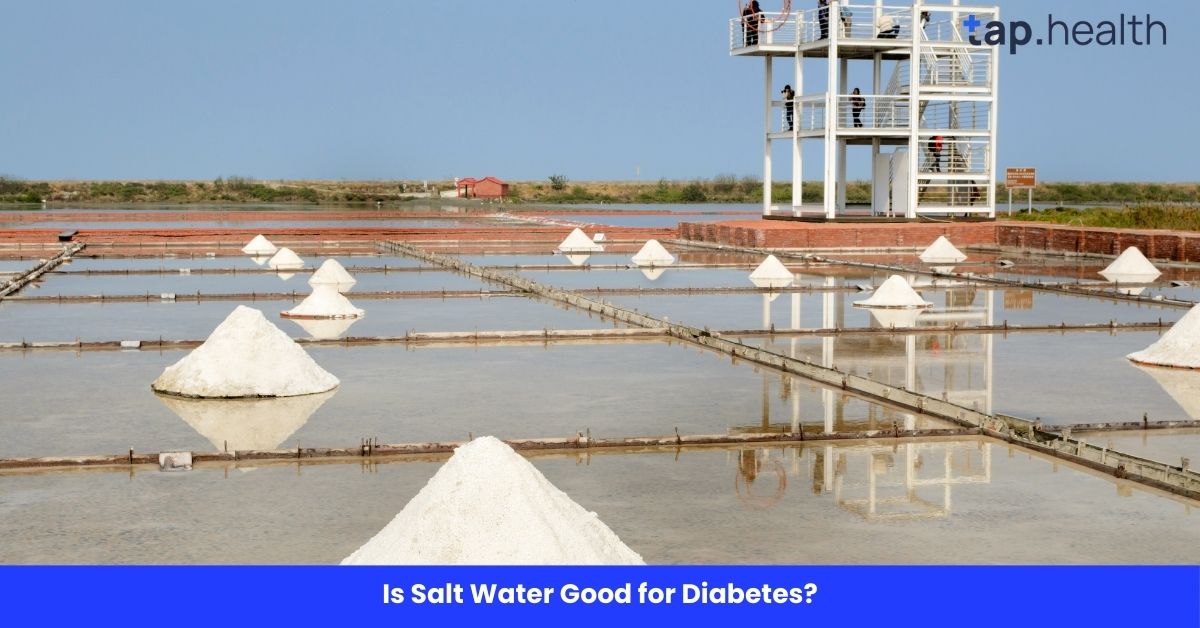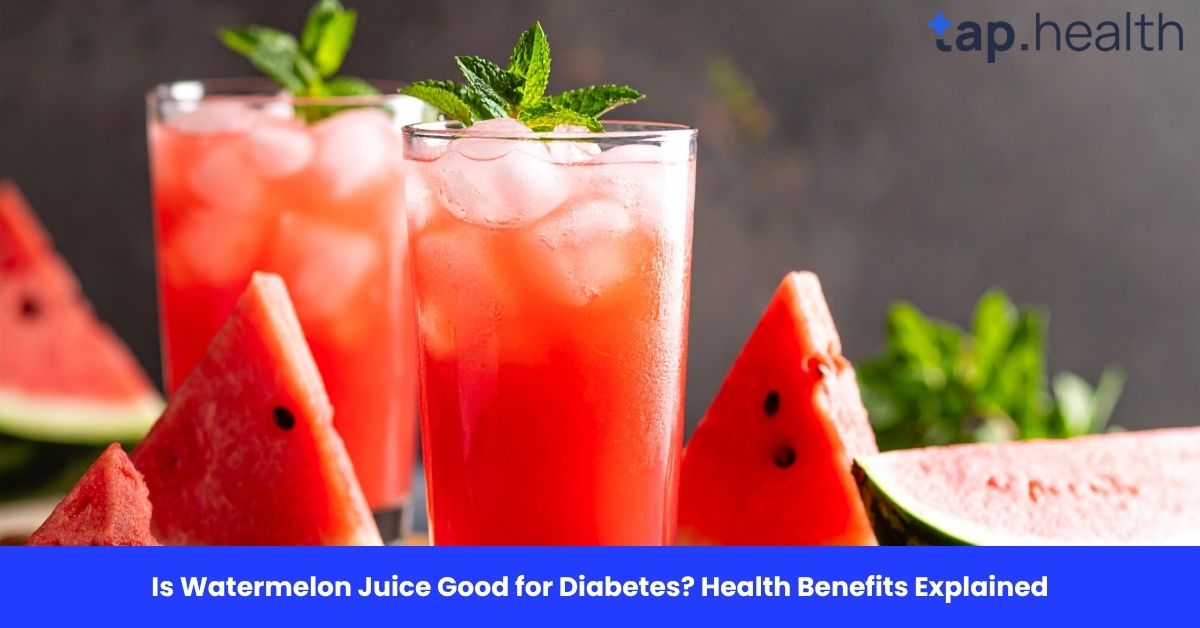Let’s cut to the chase: No, drinking salt water is not good for diabetes. In fact, it can be dangerous — especially if you have type 2 diabetes or high blood pressure. But before you panic or toss out your sea salt, let’s dig deeper. Because while drinking salt water? Bad idea. Using salt water in other ways — like rinsing your mouth or soaking your feet — might actually be harmless or even helpful.
This article is going to break it all down for you — no medical jargon, no confusing studies, just plain English. We’ll cover:
- What salt water actually does to your body
- How it affects blood sugar and insulin
- Why your kidneys hate it (especially if you have diabetes)
- The difference between drinking it and using it topically
- What real doctors and health organizations say
- Safe alternatives and smart swaps
So whether you heard this from a TikTok trend, your aunt’s “natural remedy” group chat, or just Googled it at 2 a.m., you’re in the right place. Let’s get into it.
What Happens When You Drink Salt Water?
Before we talk about diabetes, let’s talk about what salt water does to anyone’s body — diabetic or not.
Salt water is basically water with sodium chloride (table salt) dissolved in it. Sounds simple, right? But your body doesn’t treat it like plain water.
Your Body Thinks It’s Under Attack
When you drink salt water, your blood becomes saltier than normal. Your brain notices this right away and sends out SOS signals. One of those signals tells your kidneys: “Hold onto water! Don’t let any of it go!” That’s why you might not pee as much after drinking salty water — even though you drank a lot.
But here’s the problem: your body still needs to get rid of that extra salt. So eventually, your kidneys work overtime to flush it out — and they take even more water with it. That’s why people who drink seawater (which is super salty) end up more dehydrated than before.
Quick Fact: Seawater has about 3.5% salt. Your blood? Only 0.9%. That’s why drinking seawater is deadly — your body can’t handle that much salt.
Blood Pressure Goes Up — Fast
Salt makes your blood vessels hold onto water. More water in your blood = more pressure pushing against your artery walls. That’s high blood pressure — and it’s one of the biggest enemies of people with diabetes.
We’ll talk more about that in a minute.
How Does Salt Water Affect Blood Sugar?
This is the big question: Does salt water raise or lower blood sugar?
The short answer? It doesn’t directly raise blood sugar like sugar does — but it can make your diabetes worse in sneaky ways.
Salt Doesn’t Spike Glucose — But It Wrecks Insulin
Salt doesn’t contain carbs or sugar, so it won’t make your blood glucose shoot up right after you drink it. BUT — and this is a big but — too much salt messes with your body’s ability to use insulin properly.
A 2020 study published in The Journal of Clinical Endocrinology & Metabolism found that high-salt diets can lead to insulin resistance — which means your cells stop listening to insulin. And if you have type 2 diabetes, insulin resistance is already your main problem.
So even though salt water doesn’t spike your blood sugar immediately, it can make your long-term blood sugar control worse.
Salt + Diabetes = Double Trouble for Your Heart
People with diabetes are already 2 to 4 times more likely to die from heart disease. And guess what makes heart disease worse? High blood pressure. And guess what causes high blood pressure? Too much salt.
The American Heart Association recommends no more than 2,300 mg of sodium per day — that’s about one teaspoon of salt. But most Americans eat over 3,400 mg daily. If you have diabetes, you should aim for 1,500 mg or less.
Drinking salt water — even just a glass — can add hundreds or even thousands of milligrams of sodium in one shot. That’s not just “a little extra.” That’s a red flag for your heart, kidneys, and blood vessels.
Why Salt Water Is Especially Dangerous for Diabetics
Okay, so salt water isn’t great for anyone. But if you have diabetes, it’s extra risky. Here’s why.
Your Kidneys Are Already Working Overtime
Diabetes damages your kidneys over time. High blood sugar forces your kidneys to filter too much blood, which wears them out. Now add extra salt? You’re basically asking your kidneys to do double duty — and they might not be able to keep up.
When kidneys can’t remove enough salt, it builds up in your blood. That leads to:
- Swelling in your legs and feet
- Higher blood pressure
- Fluid buildup in your lungs (in severe cases)
The National Kidney Foundation warns that people with diabetes should be extra careful with salt intake — especially if they already have early signs of kidney disease (like protein in their urine).
Salt Water Can Worsen Diabetic Neuropathy
Diabetic neuropathy means nerve damage — usually in your feet and hands. One common symptom? Swelling. And guess what makes swelling worse? Salt.
Drinking salt water can cause your body to hold onto water, which increases swelling. For someone with nerve damage, that extra pressure can make pain, tingling, or numbness even worse.
Plus, if you have poor circulation (common in diabetes), that fluid doesn’t drain well — so the swelling sticks around longer.
What About Gargling or Soaking in Salt Water?
Now here’s where things get interesting — and safer. You’ve probably gargled with warm salt water when you had a sore throat. Or soaked your feet in Epsom salt (which is magnesium sulfate, not sodium chloride — more on that later). These uses are generally safe — even for people with diabetes.
Gargling Salt Water: Safe and Helpful
Salt water gargles can:
- Reduce throat inflammation
- Loosen mucus
- Kill some bacteria in your mouth
Since you’re not swallowing it, the salt doesn’t enter your bloodstream. So your blood pressure and kidneys stay safe.
Just don’t overdo it — once or twice a day is fine. And always spit it out!
Soaking Feet in Salt Water: Proceed with Caution
Many people with diabetes soak their feet to relieve dryness, cracks, or minor pain. Salt water can help clean small cuts and reduce bacteria.
BUT — and this is critical — if you have nerve damage, you might not feel if the water is too hot. And if you have poor circulation, even a small cut can turn into a big problem.
Safety tips for foot soaks if you have diabetes:
- Use lukewarm water (test with your elbow, not your foot)
- Don’t soak longer than 10–15 minutes
- Dry your feet completely afterward — especially between toes
- Check for cuts, blisters, or redness before and after
- Don’t soak if you already have an open wound or infection
And remember — table salt (sodium chloride) is fine for soaking. But Epsom salt? That’s different. It’s magnesium-based and doesn’t affect your sodium levels. Some people find it soothing, but there’s no strong science saying it’s better than regular salt for foot soaks.
Does Salt Water Lower Blood Sugar? (Spoiler: No)
Some “natural health” blogs claim that salt water can “balance your minerals” and “stabilize blood sugar.” That’s misleading — and potentially dangerous.
There’s zero scientific evidence that drinking salt water lowers blood sugar. In fact, as we’ve seen, it can make insulin resistance worse — which raises blood sugar over time.
Where does this myth come from?
Sometimes people confuse salt water with:
- Electrolyte drinks (like sugar-free Gatorade or Pedialyte) — which can be helpful if you’re dehydrated or sick, but they’re carefully balanced with potassium, magnesium, and minimal sodium.
- Fasting or detox trends — where people drink salt water to “cleanse” their system. This doesn’t help diabetes. It just dehydrates you.
Bottom line: If you’re looking to lower blood sugar, drink plain water, eat fiber-rich foods, and move your body. Don’t reach for the salt shaker.
What Do Doctors and Health Organizations Say?
Let’s go straight to the experts.
American Diabetes Association (ADA)
The ADA is crystal clear: People with diabetes should limit sodium to less than 2,300 mg per day — and ideally aim for 1,500 mg if they have high blood pressure or kidney disease.
They do NOT recommend drinking salt water for any reason related to diabetes management.
“High sodium intake is associated with elevated blood pressure, which increases the risk of heart disease and stroke — conditions already more common in people with diabetes.”
— ADA Nutrition Guidelines, 2023
Mayo Clinic
Mayo Clinic warns that too much salt can lead to fluid retention, higher blood pressure, and increased strain on the heart — all of which are especially risky for diabetics.
They also note that many “natural remedies” involving salt water lack scientific backing and could do more harm than good.
World Health Organization (WHO)
WHO recommends less than 2,000 mg of sodium per day for adults — and even less for people with chronic conditions like diabetes.
They’ve also issued warnings against “salt water detoxes” or “master cleanses,” calling them ineffective and potentially harmful.
Can Salt Water Help With Diabetes-Related Cramps or Dehydration?
Some people say they drink salt water to stop muscle cramps or rehydrate after exercise. Let’s unpack that.
Muscle Cramps
Muscle cramps in diabetes can be caused by:
- Nerve damage (neuropathy)
- Poor circulation
- Electrolyte imbalances (low potassium or magnesium)
- Dehydration
Salt water only replaces sodium — not potassium or magnesium. So if your cramps are from low potassium (which is common), salt water won’t help. In fact, too much sodium can make potassium levels drop even more.
Better options:
- Eat a banana (high in potassium)
- Drink coconut water (natural electrolytes)
- Try a sugar-free electrolyte tablet in water
Dehydration
If you’re dehydrated, your first move should be plain water. If you’ve been sweating a lot or are sick with vomiting/diarrhea, then an oral rehydration solution (like Pedialyte) is better — because it has the right balance of sodium, potassium, and glucose to help your body absorb fluids.
Salt water? Too much sodium, not enough other electrolytes. It might actually make dehydration worse.
What About Himalayan Salt or Sea Salt? Are They Better?
You’ve probably seen fancy salts at the store — pink Himalayan salt, grey sea salt, black lava salt. They all claim to be “healthier” or “more natural.”
Here’s the truth: They’re still salt. Chemically, they’re 95–98% sodium chloride — just like table salt.
Yes, they contain tiny amounts of minerals like iron, calcium, or magnesium — but not enough to make a difference in your health. You’d have to eat tablespoons of salt to get any real benefit — and that would be dangerous.
For people with diabetes, switching to sea salt won’t lower your blood pressure or improve your blood sugar. It’s the amount of salt that matters — not the type.
Fun Fact: A teaspoon of table salt = 2,300 mg sodium. A teaspoon of Himalayan salt = 1,700 mg. Slightly less — but still way too much if you’re diabetic.
Safe Ways to Use Salt If You Have Diabetes
You don’t have to cut out salt completely. You just need to be smart about it.
Flavor Without the Sodium
Try these tasty swaps:
- Garlic, onion, or ginger (fresh or powdered)
- Lemon juice or vinegar
- Herbs like basil, oregano, rosemary
- Spices like cumin, paprika, turmeric
- Salt-free seasoning blends (check labels!)
Read Labels Like a Detective
Most of the salt we eat doesn’t come from the salt shaker — it comes from packaged and restaurant foods.
Watch out for:
- Canned soups and veggies (look for “no salt added”)
- Deli meats and sausages
- Frozen meals
- Soy sauce, ketchup, salad dressings
- Bread and baked goods (yes, even sweet ones!)
Aim for foods with less than 140 mg of sodium per serving. That’s considered “low sodium” by the FDA.
Cook at Home More Often
When you cook your own meals, you control the salt. Try this:
- Don’t add salt while cooking — wait until the end, then taste
- Rinse canned beans and veggies to wash off extra salt
- Use herbs and spices to build flavor instead of salt
What to Drink Instead of Salt Water If You Have Diabetes
If you’re tempted to drink salt water for “health reasons,” here are much better — and safer — options.
Plain Water
Boring? Maybe. But it’s the #1 best drink for people with diabetes. It keeps you hydrated, helps your kidneys flush out waste, and doesn’t spike your blood sugar. Aim for 8–10 glasses a day — more if you’re active or it’s hot outside.
Herbal Teas (Unsweetened)
Chamomile, peppermint, ginger, or hibiscus tea can be soothing and hydrating. Just make sure there’s no added sugar or honey.
Bonus: Some studies suggest hibiscus tea may help lower blood pressure — which is great for diabetics.
Sparkling Water (No Sugar Added)
If you miss soda, try bubbly water with a squeeze of lemon or lime. Zero calories, zero sugar, zero sodium.
Low-Sodium Broth
If you want something savory, sip on low-sodium vegetable or chicken broth. Warm, comforting, and under 100 mg sodium per cup.
Real-Life Scenarios: When Someone With Diabetes Tried Salt Water
Let’s make this real with a few examples.
Maria, 58, Type 2 Diabetes
Maria read online that drinking salt water in the morning “detoxes your liver and balances blood sugar.” She tried it for 3 days — 1 glass of warm salt water each morning.
Result? Her blood pressure shot up. Her ankles swelled. Her fasting blood sugar went from 130 to 165. She stopped immediately and called her doctor.
Her doctor said: “Your kidneys are already working hard. Don’t make them filter extra salt.”
James, 45, Type 1 Diabetes
James is an athlete. After long runs, he used to drink salt water to “replenish electrolytes.” He started feeling dizzy and noticed his blood sugar was harder to control.
He switched to a sugar-free electrolyte drink with balanced sodium, potassium, and magnesium. His energy improved, and his glucose levels stabilized.
Linda, 67, Diabetic Neuropathy
Linda soaks her feet in warm salt water every night to help with tingling and dry skin. She uses 1 teaspoon of salt in a basin of water — and never drinks it.
Her podiatrist approved this — as long as she checks the water temp and dries her feet well. Her skin stays softer, and she hasn’t had any infections.
Key Takeaway: Topical use = usually safe. Drinking = risky.
Common Myths About Salt Water and Diabetes — Busted
Let’s clear up some dangerous myths floating around the internet.
Myth #1: “Salt water flushes out toxins and lowers blood sugar.”
Truth: Your liver and kidneys flush toxins — not salt water. And salt water doesn’t lower blood sugar. It might even raise it long-term by causing insulin resistance.
Myth #2: “Sea salt is natural, so it’s safe for diabetics.”
Truth: Natural doesn’t mean safe in large amounts. Too much of anything — even “natural” salt — can hurt you if you have diabetes.
Myth #3: “If you sweat a lot, you need to drink salt water to replace what you lost.”
Truth: Sweat does contain salt — but not enough to require chugging salt water. A balanced electrolyte drink or a salty snack (like a handful of unsalted nuts with a pinch of salt) is safer.
Myth #4: “Salt water cures diabetes.”
Truth: There is NO cure for diabetes (yet). Anyone who says salt water cures it is selling snake oil. Don’t believe it.
What to Do If You Accidentally Drink Salt Water
Don’t panic. One sip or even one glass won’t kill you — but you should take action.
Step 1: Drink Plain Water
Flush out the extra salt by drinking 2–3 glasses of plain water over the next hour.
Step 2: Don’t Eat Salty Foods
Skip the chips, pretzels, or soy sauce for the rest of the day.
Step 3: Monitor Your Symptoms
Watch for:
- Extreme thirst
- Swelling in hands or feet
- Headache or dizziness
- High blood pressure (if you have a monitor)
- Unusual fatigue
Step 4: Call Your Doctor If…
- You drank a large amount (like a full glass or more)
- You have kidney disease or heart failure
- You feel sick or your blood pressure spikes
Better safe than sorry.
Final Verdict: Should You Drink Salt Water If You Have Diabetes?
Hard no.
There is no medical reason for a person with diabetes to drink salt water. It doesn’t lower blood sugar. It doesn’t “detox” you. It doesn’t cure anything. It does raise your blood pressure, strain your kidneys, worsen insulin resistance, and increase your risk of heart disease — all things you’re already fighting against if you have diabetes.
Save the salt for your food — and even then, use it sparingly.
FAQ: Is Salt Water Good for Diabetes?
Q1: Can salt water lower blood sugar levels?
A: No. Salt water does not lower blood sugar. In fact, too much salt can lead to insulin resistance, which may raise blood sugar over time.
Q2: Is it safe to gargle with salt water if I have diabetes?
A: Yes! Gargling is safe because you’re not swallowing the salt. It can help with sore throats or mouth sores — just spit it out afterward.
Q3: Can soaking my feet in salt water help with diabetic neuropathy?
A: It might soothe dry skin or clean minor cuts, but it won’t cure nerve damage. Always test water temperature, limit soak time, and dry feet thoroughly.
Q4: Does Himalayan salt affect diabetes differently than table salt?
A: No. All salts are mostly sodium chloride. The trace minerals in fancy salts don’t provide enough benefit to outweigh the sodium risk.
Q5: What happens if I drink salt water by accident?
A: Drink plenty of plain water to flush out the sodium. Monitor for swelling, dizziness, or high blood pressure. Call your doctor if you feel unwell or have kidney issues.
Q6: Are there any benefits of salt water for people with diabetes?
A: Only topical uses — like gargling or foot soaks — offer mild benefits. Drinking salt water has no proven benefits and many risks.
Q7: How much salt is safe for someone with diabetes?
A: Aim for less than 1,500–2,300 mg of sodium per day. That’s about ⅔ to 1 teaspoon of salt — including what’s already in your food.
Q8: Can salt water help with diabetes-related dehydration?
A: No. Plain water or a balanced electrolyte drink is better. Salt water can actually make dehydration worse by pulling water into your gut.
Q9: Does salt water interact with diabetes medications?
A: Indirectly, yes. High salt intake can raise blood pressure, which may interfere with medications for hypertension or heart disease — common in diabetics.
Q10: Where can I get reliable info about diabetes and diet?
A: Stick to trusted sources: American Diabetes Association (diabetes.org), Mayo Clinic, CDC, or your registered dietitian or endocrinologist.
Wrapping It Up
Salt water isn’t a miracle cure. It’s not a secret diabetes hack. And it’s definitely not something you should be drinking — especially if you’re managing diabetes. Stick to water. Flavor your food with herbs, not salt. Soak your feet if it helps — but don’t drink the bathwater. And always, always check with your doctor before trying any “natural remedy” you read about online.
Your health is worth more than a viral trend.
Stay smart. Stay hydrated. And keep your salt where it belongs — lightly sprinkled on your roasted veggies, not floating in your water glass.



